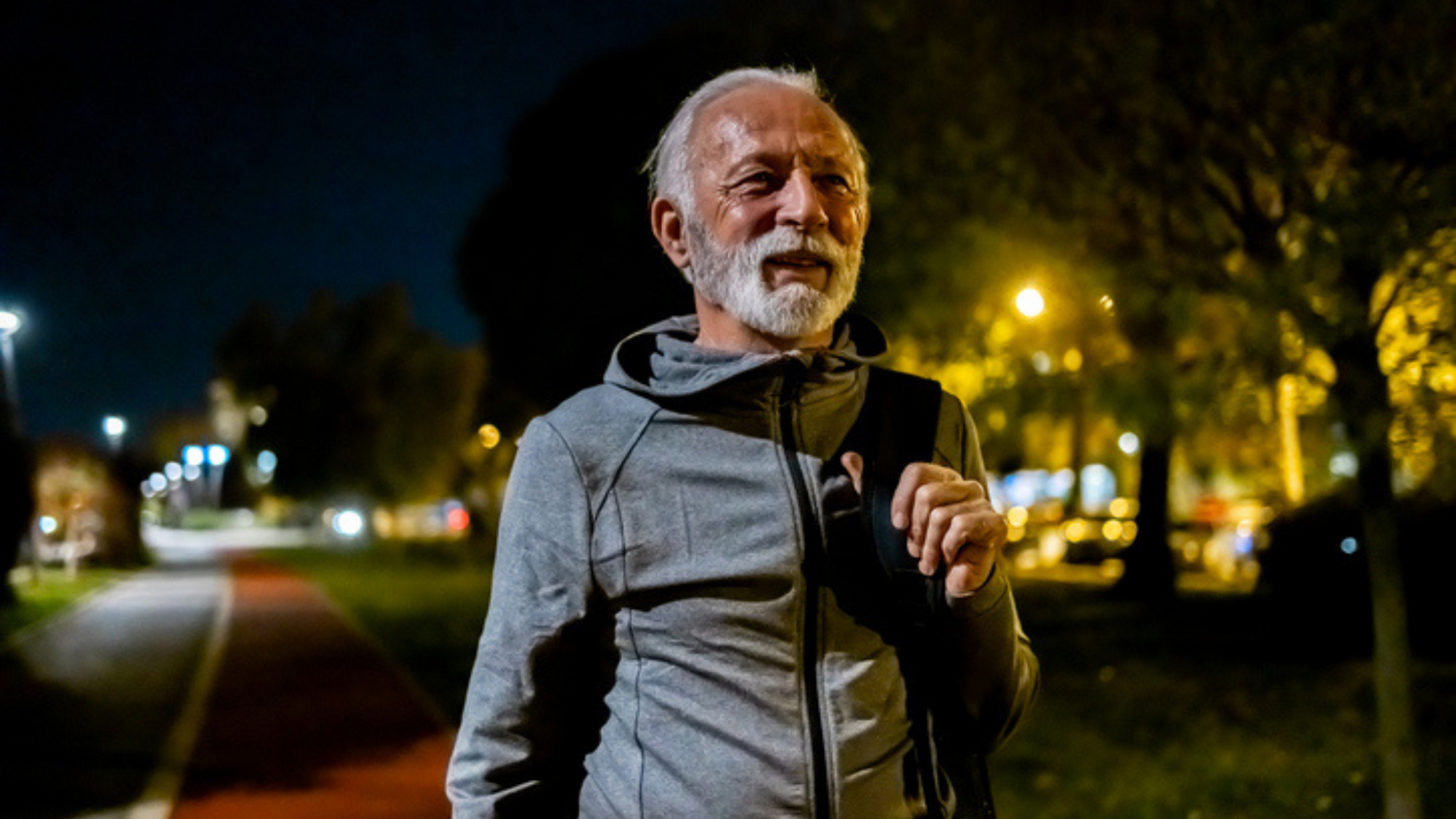Key Takeaways
-
Exercise improves sleep overall, but timing and intensity matter more than many realise.
-
Strenuous exercise less than 4 hours before bed can disrupt sleep quality and delay sleep onset.
-
Light to moderate activity in the evening may still be beneficial—especially when timed well.
It might surprise you to know that exercise is one of the most reliable ways to improve sleep quality—as long as it’s done at the right time. In fact, regular physical activity is linked with deeper sleep, better mood, and improved longevity.
But not all workouts are created equal when it comes to bedtime. A landmark study analysing over 4 million nights of biometric data found that strenuous evening exercise can actually delay sleep, raise your heart rate overnight, and reduce sleep quality (R).
So, is it bad to work out before bed? The answer is: it depends. Let’s unpack the science so you can move smarter—and sleep better.
Evening Exercise vs. Sleep: Understanding the Body’s Rhythm
To understand why exercise before bed can be tricky, let’s talk about your internal clock. Your body runs on a circadian rhythm—a 24-hour biological cycle that regulates everything from hormone production to sleep and digestion (R).
Exercise affects this rhythm in complex ways. On one hand, it raises body temperature, increases cortisol (a stimulating hormone), and activates your sympathetic nervous system—the “fight or flight” branch that keeps you alert. All of this is great for a morning or midday energy boost, but not ideal when you’re trying to wind down for sleep.
Studies show that the body needs time to cool down after strenuous physical activity before it can shift into rest mode. That’s why exercising too close to bedtime—especially with high-intensity training—can cause sleep delays and lighter, fragmented sleep (R).

What the Latest Research Shows About Evening Workouts
A comprehensive 2023 study published in SLEEP Advances analysed biometric data from 14,689 physically active individuals over the course of a year, encompassing approximately 7 million nights of sleep. It is one of the largest objective studies of its kind. The findings were striking (R).
The researchers found that when participants engaged in high-strain workouts within four hours of going to bed, they experienced:
-
Delayed sleep onset (taking longer to fall asleep)
-
Shorter total sleep duration
-
Reduced sleep efficiency (less time spent in deep, restorative sleep)
-
Increased nocturnal heart rate
-
Lower heart rate variability (HRV), a key indicator of autonomic nervous system recovery
These results highlight the potential negative impact of late-evening high-intensity exercise on sleep quality and physiological recovery.
In simple terms, the closer and more intense the workout is to bedtime, the harder it is for your body to switch gears and recover overnight.
What Counts as “Strenuous”? Let’s Define Exercise Strain
Not all evening movement is disruptive—it’s the strain that matters. Exercise strain refers to the overall physiological load of a workout, considering duration, intensity, and recovery needs.
High-strain activities include:
-
High-intensity interval training (HIIT)
-
Heavy weightlifting
-
Competitive sports
-
Long endurance sessions (cycling, running)

Light to moderate activities—like walking, stretching, gentle Pilates or yoga—don’t overstimulate the nervous system and are generally safe closer to bedtime. In fact, a short evening stroll has been shown to reduce stress and improve sleep in older adults (R).
How Evening Workouts Affect Older Adults Differently
As we age, our circadian rhythms naturally shift, and we tend to become earlier risers. This means that evening stimulation can have a stronger impact on sleep for older adults. Ageing is also associated with lighter sleep and more awakenings during the night, so anything that delays or fragments sleep can affect how rested you feel in the morning.
But don’t worry—you don’t need to skip exercise altogether if evenings are your only window. The key is to choose lighter workouts or to wrap up higher-intensity sessions by late afternoon—In fact, your body reaches peak strength in the late afternoon, typically between 2:00 PM and 6:00 PM (R).
How to Exercise in the Evening Without Harming Your Sleep
If your schedule means evenings are the only time you can work out, you can still get the benefits—without sacrificing your shut-eye. Here’s how:
-
Finish workouts at least four hours before bed, especially if they’re strenuous. This allows your heart rate, core body temperature, and stress hormones to return to baseline.
-
Opt for low-impact movement if you’re working out closer to bedtime. Think gentle stretching, tai chi, or restorative yoga.
-
Cool down properly after any evening workout. A good cool-down routine helps bring your nervous system into a parasympathetic (rest-and-digest) state.
-
Hydrate and eat appropriately, but don’t go to bed overly full or hungry. Blood sugar crashes or digestion can also interfere with sleep.
-
Establish a bedtime wind-down ritual, like reading, warm showers, or herbal tea, to signal to your brain it’s time to switch off.

Is Evening Exercise Always Bad? Not Quite
The idea that working out at night is universally bad is outdated. Modern research now shows that timing and type of exercise are far more important than the time of day alone.
For example, moderate-intensity aerobic exercise in the early evening (like walking or swimming around 5 or 6 p.m.) may actually improve sleep latency and quality—especially in those who suffer from insomnia (R).
Everyone’s body responds differently. The key is to listen to your own rhythms, experiment, and adjust accordingly.
The Bottom Line: Move Often, But Move Smart
Exercise is essential for sleep, energy, mental health, and longevity—but how and when you move makes all the difference. Strenuous evening workouts can interfere with your body’s ability to settle down for deep, restorative sleep. But when timed and tailored correctly, evening movement can still support your wellbeing.
If you’re aiming for better sleep, try finishing intense workouts at least four hours before bedtime—or go for lighter options like stretching or a calm walk.
Check out our blog on the best lifestyle changes to support deep, restful sleep at any age. Read it here.





